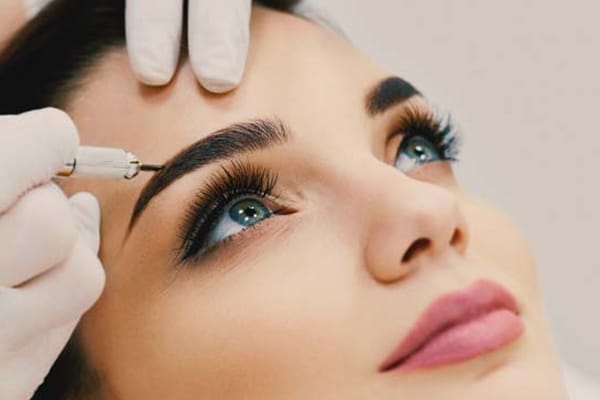In the United States, permanent makeup Perth are being used by teens at a younger and younger age, and cosmetic safety has become quite an issue. Cosmetics can become contaminated with bacteria that the brush or applicator sponge picks up from the skin. Wearing cosmetics to bed, sharing cosmetics, scratching yourself with a mascara wand, and aerosol fumes are the top dangers of cosmetic use.
The most irritating ingredients in cosmetics are talc, dye, fragrance and preservatives. It is unfortunate that the preservatives which prevent bacterial build-up are also very bad for your skin.
It is not surprising, therefore, that there is an increased interest in natural and organic cosmetics. The two main categories of safer cosmetics are mineral cosmetics and hypoallergenic cosmetics.
Mineral Cosmetics
Mineral cosmetics are quickly coming out of dermatologist clinics and high-end spas to retailer near you. Certified organic products and non-toxic makeup are becoming more mainstream as they demonstrate that they are as effective as those of the leading cosmetic companies. Women who use mineral cosmetics are said to experience fewer break-outs, as they are not affected by chemical preservatives.
This natural makeup is the simplest, most natural, and non-reactive form of cosmetics. Mineral cosmetics are made from minerals and inorganic pigments that exist in nature. Because it is not made from organic materials it cannot produce bacteria and there is no need to add chemical preservatives. Endless combinations of beautifully colored minerals, such as mica, titanium dioxide, zinc and iron oxides, and ultramarine pigments, can be used.
These elemets are created to make every cosmetic from foundation to eyeshadow to shimmer powder for the body. They are finely milled and purified, treated or coated with other pigments to create different colors and effects. Mica, for example, is a transparent mineral which is mined from the earth in thin sheets. Due to the sheer, translucent, and skin-hugging effect of the mica mineral, your natural skin tone shines through.
With mineral makeup you get all of the coverage, color, and finesse, without the chemicals, synthetics, and dyes. Mineral foundation looks and feels much more natural, without sacrificing any of the coverage. It allows the skin to breathe while balancing and protecting all skin types. The light mineral powders let skin breathe naturally and it does not settle into pores. If you’ve ever had trouble finding a foundation that matches your skin tone or locating that perfect eyeshadow color, you will love mineral cosmetics.
Hypoallergenic Cosmetics
Hypoallergenic cosmetics are products that makers claim cause fewer allergic reactions than other products. They are a greathelp to those with sensitive skin. Hypoallergenic cosmetics contain a minimum of allergenic ingredients, such as perfumes and preservatives, which will cause skin irritation and other allergic reactions.
However, there is a controversy about the labeling of hypoallergenic cosmetics. Manufacturers of cosmetics labeled as hypoallergenic are not required to submit substantiation of their hypoallergenic claims to the Food and Drug Administration, (FDA). For the past four years, the FDA has been working to clear up this confusion of claims by establishing testing requirements that would determine which products really are hypoallergenic. A cosmetic would be permitted to be labeled hypoallergenic or make similar claims only if scientific studies on human subjects showed that the product caused a significantly lower rate of adverse skin reactions than similar products not making such claims.
The manufacturers would be responsible for carrying out the required tests. The guidelines have not been finalized yet, and manufacturers may continue to label their cosmetics as hypoallergenic without any supporting evidence. Undoubtedly most products that claim to be hypoallergenic actually are, but be an intelligent consumer; read labels carefully, do some studying yourself, and do not rely solely on manufacturers claims.
Consumers concerned about allergic reactions from cosmetics should understand that no cosmetic can be guaranteed never to produce an allergic reaction. Even products that have natural ingredients can cause allergic reactions. If you have an allergy to certain plants or animals, then you may have an allergic reaction to cosmetics containing them.
If you do have an allergic reaction to a cosmetic, you should stop using all cosmetics until you and your doctor can determine which ingredient or combination of ingredients caused the reaction. Even if you have used a particular cosmetic for years with no problems, you can develop an allergic reaction. This occurs as you become sensitized to one or more of the ingredients.

